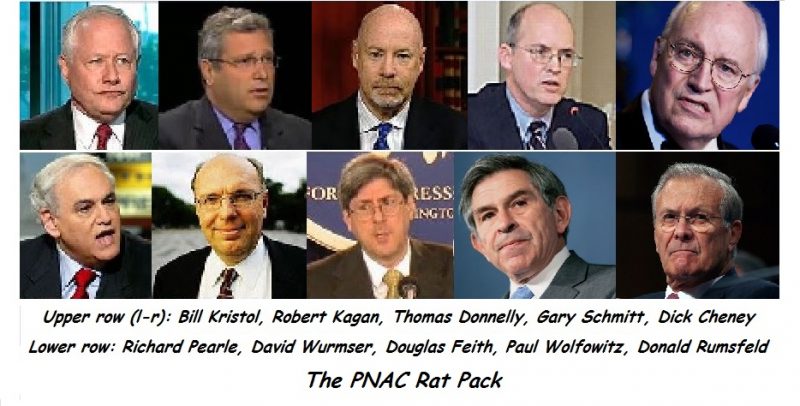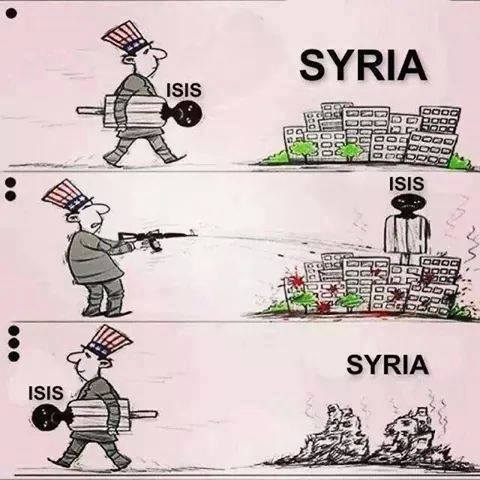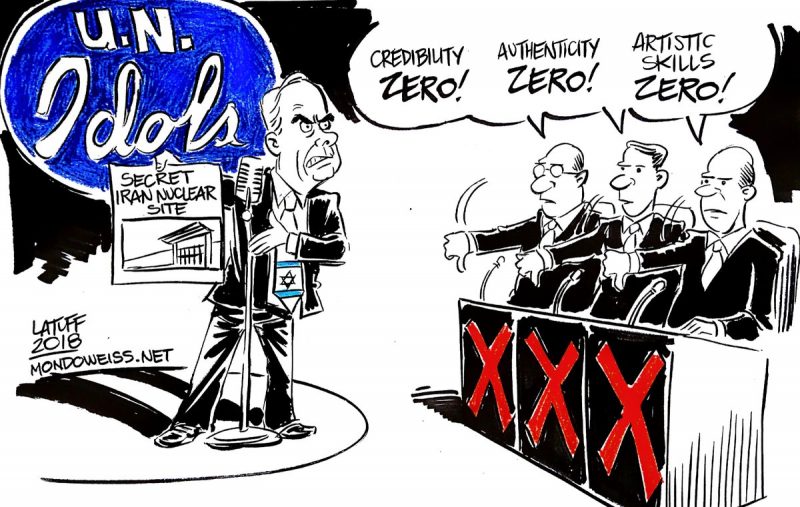A Permanent, Soylent-Based Solution to Capitalism

The architects of “regime change” in Venezuela and Iran know only too well that their interventions never bring about anything beyond chaos, destruction and death. Our Overlords are not deluded, pie-in-the-sky dreamers but clear-sighted, rational merchants of nightmares.
Where we see endless despair and violence as a result of their meddling, they see a surge in share prices.
Blackwater CEO Erik Prince will unlikely get his wish to send 5,000 of his mercenaries to Caracas, but his re-named and re-branded companies are benefiting nevertheless from the constant media exposure.
The murderers-for-hire on his payroll will always find employment in ‘hot spots’ specifically created to attract further investment in armaments, and the logistics necessary to convey them wherever a superpower or an oil rich Gulf state requires an armed response to the peasantry, or one of its leaders.
Capitalism’s internal logic of growth at any cost means that demand for the products and services corporations provide are not only met with an endless production of surplus, but created (often violently) where a lack of demand for them threads to impede its cancerous spread.
It’s the logic of Big Pharma with its stake in the junk and fast food industries: Funnel feed them breadsticks and cheesecake so that they seek out your advertised medication during a cardiac event while watching ‘The View’.
Human misery is a growth industry.
The short-term gains that come with worsening it override any long-term benefits fo ameliorating avoidable suffering with sustainable, non-violent solutions.
Even if US weapons and personnel have so far been prevented from entering Venezuela, their merchants will profit from Wall Street speculators cashing in on the headlines.
After all, they dictated them to the media corporations whose parent companies also have a stake in the creation of failed states and the weaponry they need to sustain them.
Our Overlords seldom have any regrets for the disastrous consequences of their economic and military objectives past or present.
On the contrary, they celebrate all these “setbacks”, seeing them as just another way to increase demand for more sophisticated financial and military technology.
If anything, the ever-growing list of bombed, sanctioned, embargoed, debt-ridden, occupied states and territories are ideal testing ground for products and services that will eventually be used against Americans in their own country.
“Humanitarian” interventions are not “doomed to fail” but programmed and predestined to yield “undesirable” outcomes.
Whether it’s IS or a reignited Cold War, the news is always good for those invested in global instability.

Where you see a quagmire, they see a fertile swamp teeming with business opportunities for a private military’s war supply chain.
Even a failed attempt to separate a democratically elected leader from his country’s oil supply will eventually enrich the chronically inept plotters, as they apply the same strategy elsewhere with an endless supply of government funds earmarked for their foreign policy disasters.
An extreme weather event and the subsequent floods that killed thousands was not the deadliest phenomena to strike Mozambique in recent years.
Needless to say, the impoverished South African nation was scammed into signing off on a shady (and ruinous) loan package for fishing boats that concealed the purchase of actual warships for Prince’s private navy.

The costs incurred by outfitting these high speed Trojan horse vessels with state-of-the-art naval equipment meant that there was no money left to operate the actual fishing trawlers among the fleet:
“Give a man his own fishing boat and he will become an indolent, dependent socialist for life. Teach a man to pay for your own private naval fleet, and he will spend the rest of eternity trying to pay back the debt he has incurred on your behalf”.
Coincidentally, (wink, wink) it is also where armed attacks on civilians ‘necessitate’ the costly services for security provided by the former Blackwater chief.
With foreign investors out of the way, seeing too much risk in the now violent region, Prince has seized ownership of the country’s now collateralized hydrocarbon resources.
The now natural disaster hit country will repay loans for the security and “military intelligence” Prince’s companies’ provide with dividends from the resources now under his control.
It might be tempting at this point to blame “corruption” on the part of Mozambique’s leaders in the sordid deal making responsible for the country’s death spiral into debt and instability.
However, such an easy explanation doesn’t take into account the deliberate shock tactics used against them to make hasty, uniformed decisions to deal with every immediate crisis that Prince and Co. manufacture as added pressure to their strong-arming techniques.

Heavily armed (By guess who?) militias running roughshod over the territories containing mostly undeveloped gas fields have a way of convincing a an already weakened government of the necessity of relying on loan-purchased mercenary personnel and equipment rather than its own low-tech military forces.
It has also emerged that Prince’s company weaponized other types of low cost machinery meant for a food-based industry, this time outfitting low flying agricultural crop dusters into aerial assault planes to be sold to countries looking to terrorize their own peasantry with aircraft built for that specific purpose.
The UK’s recently fired Defense Minister Gavin Williamson had similar ideas for transforming lowly farm equipment like tractors into deadly machines capable of firing off rounds of ammunition.
Perhaps he had a vision of Theresa May running though those now famous “fields of wheat” – in which case we can forgive him for this apparent lapse in judgement.
Once again, capitalism proves the worse an idea is, the more chances it has to fail spectacularly well for the class it serves.
The high risk/high yield strategy of unleashing chaos and channeling it where it best serves corporate and geopolitical interests forms the basis of neoliberalism’s repeat and falsely repented offenses.
In the official narratives that explain these ‘failures’ in crocodile tear hindsight, ‘mission creep’ is often cited as a way to excuse the oft-repeated and self-defeating actions of our neoliberal warlords.
A more accurate description would be ‘mission acceleration’ – a thoroughly deliberate expansion of an intervention’s stated objectives beyond its scope to bring in more players from a wider array of sectors, and more complications.
In fact, the more unintended consequences the better.

What better way to confuse the public and convince them of yet another “crisis” at hand requiring an immediate military response to a previous military action brought about by a military intervention that was the result of a centuries old military blunder?
Naturally, the result is an increase in political will to address countless challenges on multiple fronts all requiring massive injections of money: The military to overthrow a leader, the banks to re-organize the no longer sovereign nation’s economy, the corporations to attract investment, the NPO’s to invite donations the NGO’s to make it all seem above board and “humanitarian”.
And of course, the private contractors to carry out the dirty work when the legal restraints on these “legitimate” organizations place temporary obstacles to their outright plunder. Where you see untold trillions of dollars being sucked into the vortex of an overflowing cesspit, they see an ATM flush with freshly minted cash.
Until “one percent” more accurately represents the wealth and power of those who now possess 99% of it, there’s no nice or “sustainable” way to do business.
If a New Green Deal isn’t paid for by a 99% percent tax rate for billionaires or a 99% reduction in military spending, talk of it is just more carbon emissions from the ruling class.
Hot air is already a commodity that can be auctioned at a profit on the ’no-futures’ market.
Somewhere an armed loan officer is strong-arming a polar bear into taking on crippling debt to bear the cost of its own extinction. The only Green Deal we should support is a permanent soylent-based solution to capitalism.
By Jennifer Matsui
This article was originally published by “Counterpunch“
The 21st Century
